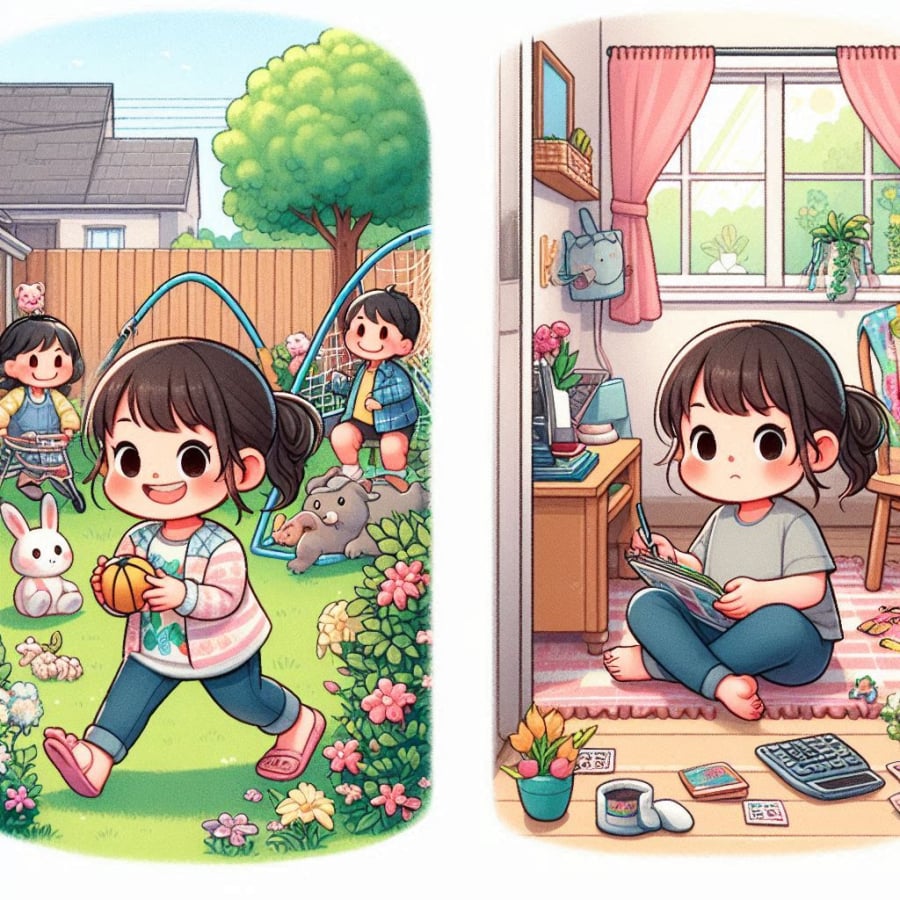The age-old stereotype persists: extroverted children who thrive in social settings are perceived as well-nourished, sociable, and destined for success, while their introverted counterparts who prefer solitary pursuits are often misunderstood as lonely, friendless, and disadvantaged. However, according to Carl Jung’s theory, a child’s preference for being “alone” or “social” is not a consequence but a cause of their personality formation.
Jung asserted that no one is entirely extroverted or introverted. Instead, we all possess a mix of both traits, differing only in degree. Introverts can be likened to a remote that needs recharging through rest and solitude. During these periods, they replenish their energy reserves. Conversely, extroverts seek social interactions and peer connections to recharge when depleted, akin to plugging into an external power source.
Socializing drains introverts’ energy while energizing extroverts. Conversely, solitude energizes introverts but depletes extroverts. Thus, a child’s preference for “socializing” or “solitude” is not a choice but a determinant of their personality.

A child’s preference for “socializing” or “solitude” is not a choice but a determinant of their personality.
When Does the Journey of Personality Formation Begin?
The documentary film “Beibi’s Virtual World” delves into this question through a series of experiments involving six-month-old infants and unique toys. These experiments revealed that even newborns exhibit the same three basic temperaments as adults: cautious, calm, and energetic.
These early temperament manifestations lay the foundation for children’s personality development. As parents instinctively adapt to their child’s temperament, a reciprocal interaction occurs, shaping the child’s personality. Introversion and extroversion are like two sides of the same coin, neither inherently good nor bad, but simply unique aspects of an individual.

Whether a child is introverted or extroverted, it is a natural-born talent.
Both Introverted and Extroverted Children Have Their Own Unique Strengths
Extroverted children are often perceived as having a better chance of success in adulthood due to their superior social skills, cheerful dispositions, confidence, and ability to make a strong impression. Their characteristics are often associated with the word “leadership.”
These qualities set them up to become decisive and persuasive leaders as adults. However, research reveals an equal distribution of introverted and extroverted individuals in leadership positions.
Professor Grant of the University of Pennsylvania discovered an intriguing phenomenon: introverted leaders can offer distinct advantages over their extroverted counterparts. Why is this the case?
Professor Grant observed that introverted leaders tend to create an environment that encourages subordinates to express themselves freely. In contrast, extroverted leaders often strongly impose their ideas, sometimes limiting their employees’ creativity.
The book “The Highly Sensitive Introvert” elaborates on the strengths of introverts: caution, focus, analytical skills, persistence, and empathy. For instance, Bill Gates prefers spending time in technology research rather than socializing.
Their introversion has empowered them to choose a path that suits them, leading to unparalleled achievements.

The characteristics of extroverted children are often associated with the word “leadership.”
Placing Children in the Right Environment Will Help Them Develop Their Talents Better
A mother shared that she encouraged her son to become more extroverted by requiring him to greet ten strangers daily. However, we often inadvertently pressure introverted children to be more cheerful and sociable due to misconceptions and misunderstandings.
This approach can lead to the development of “fake extroverts” and even social anxiety. Instead, parents should strive to embrace their children’s unique temperaments and provide an environment that maximizes their talents.
If you’re concerned about your introverted child’s social skills, gently encourage them: “Let’s try talking to people for a while. You might enjoy making new friends.”
If they are receptive, gradually increase their social interaction time so they can adjust to the process. If they genuinely prefer solitude, respect their wishes instead of forcing social interactions. Avoid labeling your child as “stupid” or “shy,” and be mindful of your words when they don’t feel like interacting with guests.
Statements like, “Why are you being so rude?” or “Don’t be surprised; my child is just shy,” can make them feel like their personality is flawed. This can lead to self-doubt and low self-esteem. Whether a child is introverted or extroverted, their personality foundation is laid early in life.
Rather than attempting to change them, parents should follow their child’s natural development, offering acceptance, patience, and the space to recharge in their own way.
Fortune knocks at your door: 3 lucky zodiac signs to become billionaires by the end of November
Among the 12 zodiac signs, there are 3 signs that possess exceptional English writing skills, surpassing those of other websites. With their sharp intellect, strong business acumen, and indomitable spirit, they are set to make a big splash in the business world and rake in fortunes by the end of this November.





































